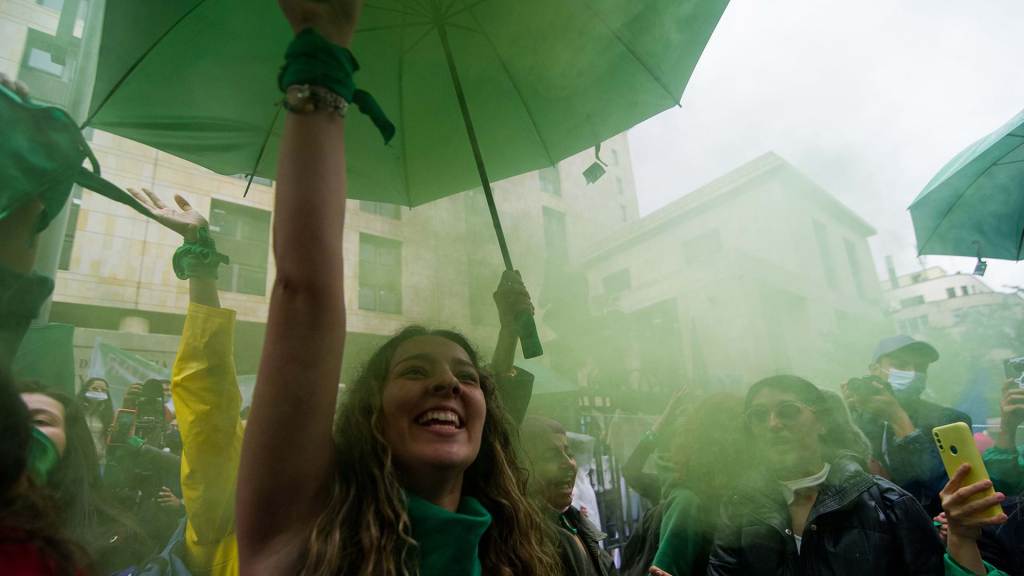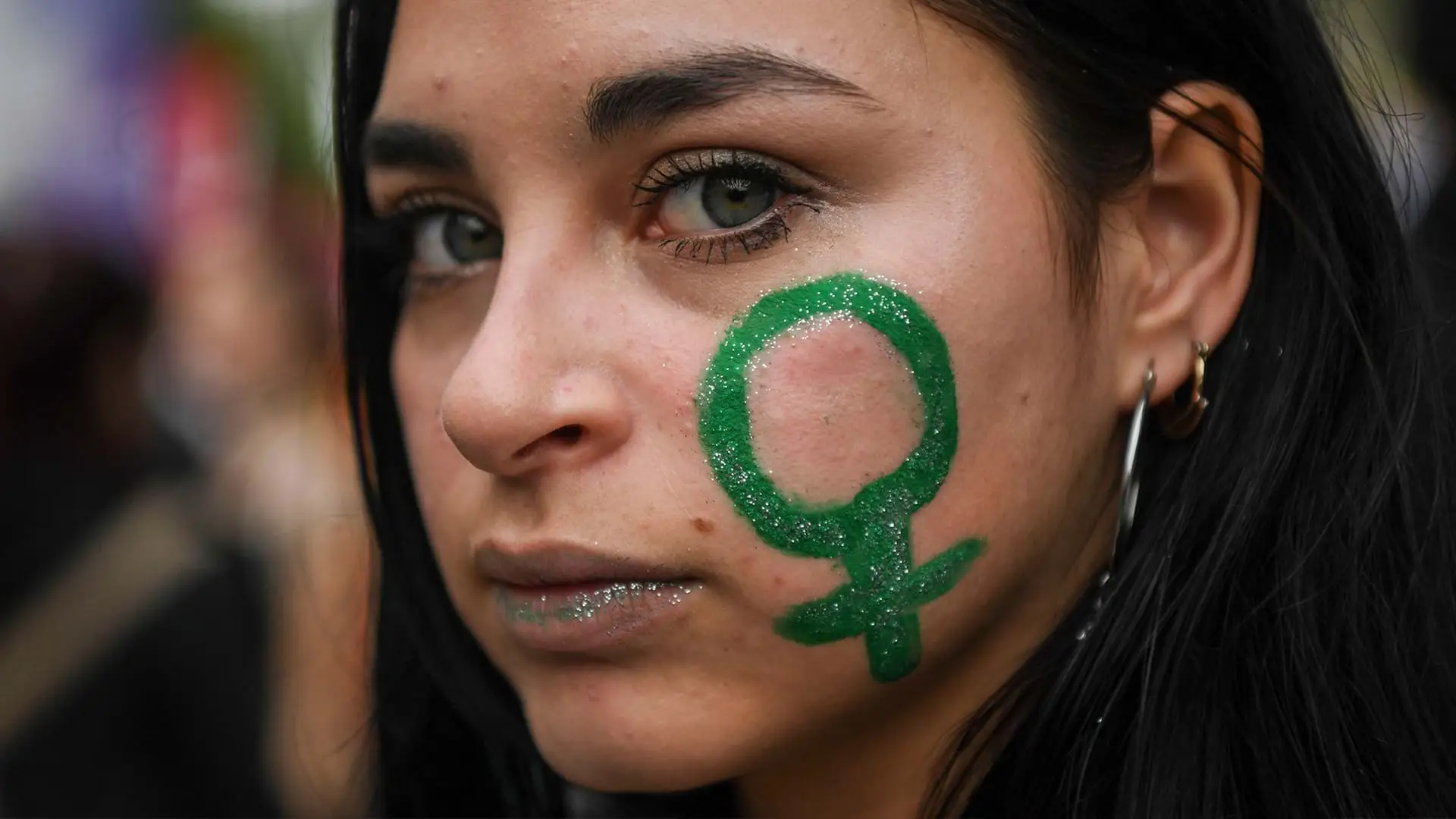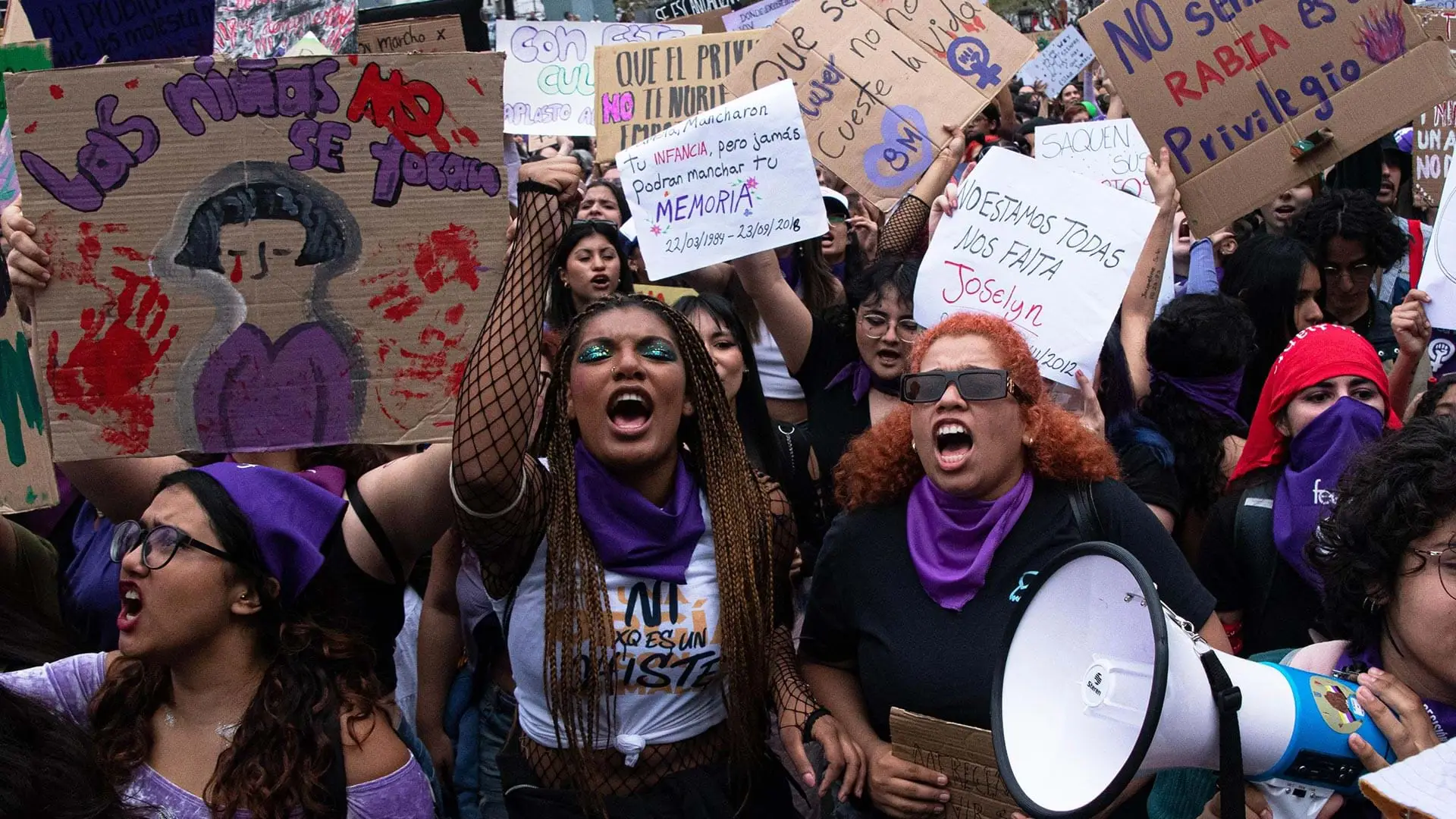How civic space helped Latin America’s feminists achieve historic wins
 Long Visual Press /Getty
Long Visual Press /GettyIn the late afternoon of March 8, Marcia Aguiluz Soto, the managing attorney at Women’s Link Worldwide, was at an International Women’s Day march. All around her, thousands of protestors held signs showing support for queer women. Lesbians. Mothers. Girls. Trans women. Afro-descendants and Indigenous women. Women working in dangerous conditions. As the march headed toward the Presidential House, Aguiluz Soto could not stop smiling.
No stranger to protest, Aguiluz Soto has taken to the streets for years. In 2018, she joined millions of feminists across Latin America who marched to protect their reproductive rights and make their voices heard in what became known as “La Marea Verde” (the Green Tide). This historic mass movement to protect and expand women’s and gender-nonconforming people’s rights in the region was a powerful example of what’s possible when people have the right—and space—to come together and speak their truth and dissent to power. As a result of their collective efforts, Argentina became the region’s largest country to legalize abortion, Mexico’s Supreme Court voted to decriminalize abortion, and Colombia created one of the most liberal abortion laws in history, legalizing the procedure through 24 weeks of pregnancy.
 EITAN ABRAMOVICH/ Getty
EITAN ABRAMOVICH/ Getty In Argentina—and other Latin American countries—green became the symbolic color of the pro-choice movement, with activists waving green flags and banners, wearing green scarves, and painting their faces in the bright, verdant color.
A robust civic space—be it physical or virtual—is essential to democracy, but since March 2020, 155 countries across the Global South have placed new restrictions on public assemblies. Without the space to organize or the opportunity to speak out, people who live on the margins are systematically excluded from the decisions that affect them most. Even when the right to assemble is put in place, there is a sponginess to civic space. It can expand but then quickly contract, creating periods of stalled progress, or even steps backwards to deepen inequality.
“There has been progress, but we are presently facing a negative moment for civic space,” said Fátima Gamboa, the CEO of feminist organization Equis Justicia, which works to transform institutions, laws, and public policies. “Human rights and feminist organizations are being criminalized, and social programs aimed at strengthening civil society are being eliminated.”
Still, what the world witnessed in Latin America was democracy in action. It was a social and political awakening, fueled by masses of activists in partnership with civil society. And it was evidence of the critical need to protect civic space around the globe, so people can continue to shape the future of democracy and hold their governments accountable.
For democracy to thrive, people across the political spectrum must be able to dissent and demand rights.
We speak to some of the region’s feminist leaders about what they’ve seen when civic space opens and what’s next for a feminist movement that’s far from finished.
Telling stories that matter: the power of prose
In 2019, more than a century after Mexico’s 1917 constitution declared men and women equal, Mexican women won constitutional reform that secured gender parity for all candidates for elected office. Two years later, in 2021, Mexico elected a Congress that was more than half female. But feminist leaders share that there is a stark disparity between the recognition of rights and the reality. “Women [across Latin America] have historically had little control over their bodies, desires, and freedoms,” explained Gamboa. “We have been subjected to control by our fathers, brothers, men, and the state.”
Further south, access to civic space in Colombia helped feminist news organization Volcánicas take a step towards dismantling a system that props up the patriarchy and denies women rights. In 2020, Volcánicas documented horrific abuse at the hands of famed film director Ciro Guerra. “Politicians and the mainstream media underestimate young women,” director Catalina Ruiz-Navarro said. “Their participation in this story demonstrates their bravery and willingness to be part of public discussions on pervasive issues affecting women.” Though Guerra retaliated with a criminal complaint, two guardianship requests to own information, and a civil lawsuit to exclude the survivors’ voices and feminist journalists from civic space, the Court ruled in Volcánicas’ favor. “The decision classified judicial harassment as a strategy for censorship and affirmed that sexual violence complaints are protected speech,” said Ruiz-Navarro. “This was a huge victory for us, for civic space, and for survivors of gender-based violence who heard that their stories deserve protection.”
 EZEQUIEL BECERRA / Getty
EZEQUIEL BECERRA / GettyOn International Women’s Day in March, demonstrators in Costa Rica gathered to show solidarity with women and gender-nonconforming people of different races, ages, and backgrounds.
Charting change in courts, Congress, and civil society
Feminist leaders remind us that miracles rarely happen overnight—real, transformative change takes time. For example, in 2006, former attorney Mónica Roa from Women’s Link Worldwide successfully convinced the Colombian Constitutional Court to overturn a blanket ban on abortion, decriminalizing it in cases of rape, fetal malformation, and when the woman’s health was in danger. For her efforts, Roa received death threats. Legal abortion through week 24 of pregnancy was 16 years away.
“We are still fighting to show that sexual and reproductive rights are human rights,” said Aguiluz Soto, who said that progress is happening, albeit slowly, in courts, in Congress, and in partnership with civil society. She points to March 8 when Honduras’ first woman president signed an executive order, overturning a 13-year-ban on the morning-after pill, and highlights that feminist movements have ensured that every Latin American country now has some form of legislation to condemn or curb intimate partner violence.
While Ruiz-Navarro and Aguiluz Soto realize there is more work to be done, they are inspired by the young women carrying the torch beside them. “At the most recent International Women’s Day march, the majority of the protesters were under the age of 20,” Aguiluz Soto said. “They have access to so much information, and they are outraged by injustices. They question stereotypes, violence, and inequality, and they want to speak up and be heard.”
While this new generation is adding fuel to the fire, the road ahead will be bumpy, despite feminists’ historic wins across the region. According to Aguiluz Soto, there is an anti-rights, fundamentalist movement emerging that “has a lot of money and does not care about democracy.” As she explained, “They’re committed to eliminating many of the advances we’ve made so they can maintain their privilege and the status quo.” It’s circumstances like these that demonstrate both the importance—and fragility—of civic space in the Global South and around the world.
As these leaders make clear and the success of the Green Tide proves, civic space plays a vital role in building movements and keeping democracy alive. For democracy to thrive, people across the political spectrum must be able to dissent and demand rights. March and protest without fear of retribution. Share their stories. When these conditions—and the institutions that bolster them—exist, civic space remains open and those once silenced and suppressed can claim their rights.
Related grantees
